#Salvo Randone
Explore tagged Tumblr posts
Text

#*joyous laughter and mirth unburdened by what could be*#fellini satyricon#satyricon#eumolpo#salvo randone
90 notes
·
View notes
Text

Machine Gun McCain (Gli intoccabili), Giuliano Montaldo (1969)
#Giuliano Montaldo#Mino Roli#John Cassavetes#Britt Ekland#Peter Falk#Gabriele Ferzetti#Pierluigi Aprà#Luigi Pistilli#Florinda Bolkan#Tony Kendall#Salvo Randone#Gena Rowlands#Erico Menczer#Ennio Morricone#Franco Fraticelli#1969
7 notes
·
View notes
Text
I Giorni Contati (1962) Elio Petri
8 notes
·
View notes
Photo

#shoot first die later#luc merenda#salvo randone#delia boccardo#richard conte#raymond pellegrin#vittorio caprioli#gianni santuccio#elio zamuto#marisa traversi#fernando di leo#1974
0 notes
Text



the razor blade wrapped in silk moment... a little reference for those who watched him in the idiot (1959) exactly.


i knew these low quality autosubbed screencaps would be useful one day. uh my mind
#while we're at it there's also a petri universe shoutout w salvo randone's character#who's referencing himself from his days are numbered (1962)#but i suppose no one cares about him (sad) so he does not get a separate post#contrary to this post's content that everyone cares so much about hhhhhhh#investigation of a citizen above suspicion#gian maria volonté
10 notes
·
View notes
Text
Reason #1 why you should watch the brothers karamazov 1969 (italian series)
FUCKING FYODOR K
The worst man alive is also the funniest character in the show, he's got the best facial expressions and body language (thank you salvo randone)
#him and pavel are the funniest i swear#fyodor pavlovich karamazov#the brothers karamazov#tbk#tbk 1969#dostoevksy#ruslit#russian literature
104 notes
·
View notes
Text
🎬The 10th Victim (1965)
The 10th Victim (Italian: La decima vittima) is a 1965 science fiction film directed and co-written by Elio Petri, starring Marcello Mastroianni, Ursula Andress, Elsa Martinelli, and Salvo Randone. An international co-production between Italy and France, it is based on Robert Sheckley's 1953 short story "Seventh Victim".
10 notes
·
View notes
Text
I fratelli Karamazov 1969 [EP1] - Fëdor Pavlovič's birthday and the arranging of a meeting
More than a month since the first installment, I bring you... another five minutes of Karamazovian drama.
part one | part two (you are here!) | part three
Some sparse notes before the translated transcripts start under the cut: 1. usual disclaimer that I'm not a professional, just an amateur, and am doing this out of pure insanity -- if you want to discuss translation related things or have some corrections, my inbox is open and your thoughts are welcomed <3; 2. I actually wanted to get to Smerdjakov and Ivan's scene with this bunch, but I belathedly realised that it was too much of a bulk for me to undertake at once, so I decided it would have to go with the next bulk of scenes -- it makes sense, Ivan's preparing fot Katya's soiree and next there will be Katya's soiree; 3. I've decided that, bar future requests and/or my change of mind, I'll proceed with the translation in the chronological order of scenes and when I'll be done with a whole episode I'd like to see if I can manage to submit this stuff to some of the people who've uploaded the episodes on youtube, so that non italian speaker peeps can enjoy them subbed -- or I might just upload them myself, I'll see, it's just an idea for now; 4. did I say I love the drama sets? because I do. Look how cluttered and lived in they look! 5. You might not spot him on a first watch, but Smerdjakov is present during the birthday scene! He keeps to the side in the first shot and you can only see him from the back, but he is there -- and yes, he has a bowlcut; 6. I've kept some speaking quirks in the transcripts -- the ehs, ehms, mmhs, and hics -- because I feel they help get a feeling of the character just as the bare stage directions do. Plus, in the case of Fëdor Pavlovič -- Karamazov sr. in the transcript -- really do drive home how he's trying to gaslight gatekeep girlboss his own sons; 7. the more I rewatch the more I want to bite Umberto Orsini.
A propos of actors, here are: Salvo Randone as Fëdor Pavlovič, Mark Hamill Carlo Simoni as Alëša Karamazov, Corrado Pani as Dmitrij Karamazov, Umberto Orsini as Ivan Karamazov and Antonio Salines as Smerdjakov.
Original script by Diego Fabbri, directed by Sandro Bolchi.
You can follow watch the drama here on YT or here on RaiPlay -- I suggest the latter, it's free and it's the original source, but youtube's still there if you prefer.
[INT. – AT THE KARAMAZOV’S/DINING ROOM] min. 5:54
(sounds of applause; the family is reunited around the dining table)
Karamazov sr.: Ah…! Grigorij, put it here.
(Grigorij leaves the birthday cake in front of Karamazov sr.)
Alëša: (is talking about the candles on the cake) This tallest one is the half century and these other six are the years: fifty-six!
Karamazov sr.: Fifty-six, eh? That’s right, and you think they’re too many, eh? – but you’ll see how I prove myself, look: I’ll blow them out in a single breath. (blows on the candles)
(more applause; Karamazov sr. laughs)
Karamazov sr.: (cont.) And now… I’ll have to cut this beautiful cake. Eh… it really is beautiful; and the biggest slice – and the most beautiful too, I’d say, look at this red candied fruit – the biggest slice I want to offer to my eldest son Dmitrij! Not because he’s the firstborn, no, I don’t care about these things, but to show him proof that I really don’t have anything against him… Dmitrij, I don’t have anything. I want to tell you today in the presence of your brothers; It’s so rare being together like this: one is always at the monastery, another is always traveling, already about to leave for Moscow – but I say, what is so entertaining in Moscow (laughs) that you don’t have here beside your loved ones… eh?
(to Dmitrij, sitting on his left) Here it is… (serves him the cake) here it is, and let there be peace between us, mh? Do you want to?
Dmitrij: Of course I want to – but let’s not talk about what’s dividing us, we might ruin the party and I… don’t want to. I hope you’re not thinking all will be quiet because of a slice of cake.
Karamazov sr.: (snorts) See! (slams a hand on the table) You heard him too, eh? You tell me, you all say if it’s me who doesn’t want peace… you say it.
Dmitrij: (gets up) I beg your pardon. (exits scene)
[INT. – AT THE KARAMAZOV’S/LIVING ROOM] min. 8:23
(Karamazov sr. is sitting in an armchair with Alëša on a couch by his side, Ivan is standing not too far from them. Smerdjakov is standing by a table near Karamazov sr., downs a glass of liquor – unseen by the others? – and leaves the scene)
Karamazov sr.: Now, I guarantee you – and I could show you legal papers, valuation of assets… everything, in short – that before the law I don’t owe a ruble more to your brother Dmitrij. What I owed him for his mother’s heritage was given to him, it’s on him if he dilapidated it. Hic!
Ivan: Let’s say that you’re right before the law and that no one could force you to give anything to Dmitrij… now I ask you if you really believe that you’ve given him everything in accord with the fair value of things: Dmitrij argues that you’ve robbed him like the worst of strangers, he argues that with the twenty-eight thousand rubles of the heritage you’ve gained, dealing with them, at least one hundred thousand.
Karamazov sr.: (grumbles) That was thanks to me, what does it matter? Eh! The net of the heritage was recognised as twenty-eight thousand roubles and I gave to your brother Dmitrij twenty-eight thousand roubles – not one less! My position is then clean.
Alëša: But do you think it right, father mine, to keep all the earnings made with his money?
Karamazov sr.: The law is on my side!
Alëša: Let the law be, Mitja knows too that on that side he won’t make one ruble more, and in fact he didn’t bring you before the tribunals – but it’s from the conscience, in this case, that you must let yourself be guided: Dmitrij is your son and you have to behave with him like a father… good and rightful.
Karamazov sr.: Here it is, here it is, the voice of the monastery! And I don’t want to shut my ears when my little seminarist is talking: come on, let’s hear it, what is that you have to propose.
Alëša: I don’t know, but it’s important that you don’t refuse Dmitrij’s requests as you have done until now; discuss them together and surely you will find a solution.
Karamazov sr.: Na-h! I’m telling you, my child, that the two of us – me and Dmitrij, I mean – won’t ever find any solution, because we’re cut from the same cloth, after all… we’re Karamazovs and we don’t want one to win over the other (he smiles slyly) that’s why… I forward a proposal that will surprise you.
Ivan: Let’s hear the proposal.
Karamazov sr.: I’m willing to put this matter in the hands of a righteous man that won’t be either on mine, nor on his side.
Ivan: And who would this man be, (with a harsh tone) does he exist?
Karamazov sr.: You’re wrong, Ivan, to speak like you do (gets up to get some liquor from a nearby table) – and with that tone! You’re wrong to not believe in a man’s justice anymore.
(to Alëša) What would you say, Alëša, if I’d propose as “other”, judge without appeal, your teacher?
Alëša: Father Zosima?!
Karamazov sr.: You said it. Let him decide – they say he’s righteous, no? They even say he’s a saint. Me, I don’t know, but you, my child, know him surely better than I do – me that, without being a miscreant, am still a great sinner. And so, would you like it? Father Zosima? Beh, what he’ll decide, after hearing our reasoning, will be done. I pledge to follow his verdict even if it’ll be entirely against me, I promise. Rather, do you think that your brother will accept?
Alëša: I hope so!
(to Ivan) What do you say, Ivan?
Ivan: It’s an idea…
(to Karamazov sr.) I see that you don’t lack imagination when you want to, not even generosity.
Karamazov sr.: (laughs) You’re surprised, eh? It's because you don’t know him, your old father! And you don't respect him – but I’ll show you, if we go up with Mitja to the sanctuary, I’ll show you!
Alëša: I’ll think about arranging the meeting!
Karamazov sr.: Good! You all come, eh, all of you, all of you, I want everybody to be there, you will only give me time and date and I’ll be ready like… like a humble pilgrim climbing to the sanctuary to receive grace.
(to Ivan) And you mustn’t miss it! Even if you lack faith. Eh… I know, I know that you don’t believe in God anymore… a father understands everything; but you have to be there too, as… as a witness, eh? Would you like to? Be a witness?
Ivan: I’ll be there, don’t doubt it. (exits scene)
Karamazov sr.: (to Smerdjakov, who came near him bringing a lit candle, with a complaining air) Why did you want to break this atmosphere… it was so good in the dim light, you couldn’t see the faces – and it was better – now, instead…
Smerdjakov: I lit them up because it was time, Master–
Karamazov sr.: (angry) It has to be me to say it, when it’s time! Remember it, another time.
#i will never not find funny the fact that alyosha looks so much like luke skywalker#the brothers karamazov#i fratelli karamazov#fëdor pavlovič#alyosha karamazov#mitya karamazov#dmitri karamazov#ivan karamazov#pavel smerdyakov#sam.exe
10 notes
·
View notes
Text
Toby Dammit (Federico Fellini, 1968) Cast: Terence Stamp, Salvo Randone, Annie Tonietti, Marina Yaru. Screenplay: Federico Fellini, Bernardino Zapponi, based on a story by Edgar Allan Poe. Cinematography: Giuseppe Rotunno. Production design: Piero Tosi. Film editing: Ruggero Mastroianni. Music: Nino Rota.










Toby Dammit (Federico Fellini, 1968)
272 notes
·
View notes
Text
After his young lover, Gitone, leaves him for another man, Encolpio decides to kill himself, but a sudden earthquake destroys his home before he has a chance to do so. Now wandering around Rome in the time of Nero, Encolpio encounters one bizarre and surreal scene after another. Credits: TheMovieDb. Film Cast: Encolpio: Martin Potter Ascilto: Hiram Keller Gitone: Max Born Eumolpo: Salvo Randone Trimalcione: Mario Romagnoli Fortunata: Magali Noël Trifena: Capucine Vernacchio: Fanfulla Il predone: Gordon Mitchell Minotauro: George Eastman Il capitano: Carlo Giordana Enotea: Donyale Luna Arianna: Elisa Mainardi Proconsole: Marcella Di Falco L’imperatore: Tanya Lopert La schiavetta: Hylette Adolphe Il suicida: Joseph Wheeler La matrona: Lucía Bosè Abinna: Giuseppe Sanvitale Scintilla: Danika La Loggia Lica: Alain Cuny Orgy Musician: Richard Simmons Liberto arricchito: Eugenio Mastropietro Theather Group Woman (uncredited): Maria Mascarielli (uncredited): Dalia Zagni (uncredited): Ottaviano Dell’Acqua …: Genius …: Catharina Dahlin (uncredited): René Fiorentini Party Guest (uncredited): Nadia Balabine Imperatore nella rappresentazione: Alvaro Vitali Film Crew: Original Music Composer: Nino Rota Story: Federico Fellini Co-Writer: Brunello Rondi Producer: Alberto Grimaldi Set Decoration: Danilo Donati Director of Photography: Giuseppe Rotunno Editor: Ruggero Mastroianni Story: Bernardino Zapponi Novel: Petronius Original Music Composer: Tod Dockstader Original Music Composer: Ilhan Mimaroglu Original Music Composer: Andrew Rudin Production Design: Luigi Scaccianoce First Assistant Director: Maurizio Mein Second Assistant Director: Liliana Betti Line Producer: Enzo Provenzale Camera Operator: Giuseppe Maccari Makeup Artist: Rino Carboni Hair Department Head: Luciano Vito Production Manager: Roberto Cocco Unit Manager: Lamberto Pippia Script Supervisor: Norma Giacchero Visual Effects: Joseph Nathanson Assistant Editor: Adriana Olasio Second Assistant Director: Lia Consalvo Movie Reviews:
#1st century#ancient rome#debauchery#earthquake#labyrinth#love triangle#male homosexuality#roman bath#slave#surreal#Top Rated Movies#Wedding
0 notes
Text

#ProyeccionDeVida
🎥 Cine Italiano, presenta:
🎬 “EL MAGNÍFICO CORNUDO” [Il Magnifico Cornuto / The Magnificent Cuckold]
🔎 Género: Comedia / Romance
⏰ Duración: 124 minutos

✍️ Guión: Diego Fabbri, Ruggero Maccari y Ettore Scola
🎼 Música: Armando Trovajoli
📷 Fotografía: Armando Nannuzzi (B&W)
🗯 Argumento: Andrea, convencido de lo fácil que le resulta a una mujer engañar a su marido, empieza a albergar dudas sobre la fidelidad de su bellísima mujer, Mariagrazia. Pero, cuando la duda se convierte en obsesión, su conducta respecto a ella se vuelve completamente disparatada, hasta el punto de acosarla sin tregua, exigiéndole que le dé el nombre de su amante.

👥 Reparto: Claudia Cardinale (Maria Grazia), Ugo Tognazzi (Andrea Artusi), Michèle Girardon (Cristiana), Bernard Blier (Mariotti), Paul Guers (Gabriele), Philippe Nicaud (Doctor), Salvo Randone (Belisario), Gian Maria Volonté (Assesseur), Susy Andersen (Wanda Mariotti), Alfonso Sansone y Edda Ferronao (Younger Maid)
📢 Dirección: Antonio Pietrangeli
© Productoras:Les Films du Siecle, Roxy Film & Ultra Film
🌏 Países: Italia-Francia

📅 Año: 1964
📽 Proyección:
📆 Jueves 18 de Julio
🕔 6:30pm.
🏡 Auditorio Leonardo Da Vinci del Instituto Italiano de Cultura (av. Arequipa 1055, Urbanización Santa Beatriz - Lima)
🚶♀️🚶♂️ Ingreso libre

🎤 El dato: Después de la proyección se realiza el Conversatorio: "Celos a la Italiana. Una divertida sátira social".
0 notes
Text
È morta a Roma all’età di ottantanove anni la produttrice Marina Cicogna, produttrice di film quali C’era una volta il West di Sergio Leone, Il giorno della civetta di Damiano Damiani, Teorema e Medea di Pier Paolo Pasolini, Indagine su un cittadino al di sopra di ogni sospetto e La classe operaia va in paradiso di Elio Petri, e molti altri. Nata nel maggio 1934, a Palazzo Volpi di Misurata, dal conte Cesare Cicogna Mozzoni e dalla contessa Annamaria Volpi di Misurata, Marina Cicogna Mozzoni Volpi di Misurata consegue la maturità classica e frequenta il Sarah Lawrence College di New York - avendo come insegnante Marguerite Yourcenar -, prima di optare per una scuola di fotografia. Prima donna produttrice in Europa, nel ’67 diventa titolare, insieme al fratello Ascanio - detto “Bino” - della casa di produzione e distribuzione Euro International Films - portando in Italia importanti film stranieri come L’uomo del banco dei pegni (1965) di Sidney Lumet, con Rod Steiger e Bella di giorno (1967) di Luis Buñuel, con Catherine Deneuve - e si afferma fin da subito con opere importanti e di successo, fra cui C’era una volta il West (1968) di Sergio Leone, con Claudia Cardinale, Charles Bronson, Henry Fonda e Jason Robards, Il giorno della civetta (1968) di Damiano Damiani, tratto dal libro omonimo di Leonardo Sciascia (fu il secondo libro di Sciascia ad esser portato al cinema dopo A ciascuno il suo di Elio Petri, uscito l’anno avanti) ed interpretato da Franco Nero, C. Cardinale, Lee J. Cobb, Nehemiah Persoff e Tano Cimarosa, Teorema (1968) di Pier Paolo Pasolini, Metti una sera a cena (1969) di Giuseppe Patroni Griffi, Medea (1969) di P. P. Pasolini, con Maria Callas, Indagine su un cittadino al di sopra di ogni sospetto (1970) di Elio Petri, con Gian Maria Volonté e Florinda Bolkan, e che vince l’Oscar come Miglior Film Straniero, La classe operaia va in paradiso (1971) di E. Petri, con G. M. Volonté, Mariangela Melato, Salvo Randone, Luigi Diberti e Flavio Bucci, Lo chiameremo Andrea (1972) di Vittorio De Sica, con Mariangela Melato, Nino Manfredi ed un giovane Gigi Proietti, Fratello sole, sorella luna (1972) di Franco Zeffirelli, Un uomo da rispettare (1972) di Michele Lupo, con Giuliano Gemma e Kirk Douglas (in uno fra i suoi pochi film in Italia), Una breve vacanza (1973) di V. De Sica, Le orme (1974) di Luigi Bazzoni. Grande appassionata di fotografia, negli anni della cosiddetta “Dolce vita” immortala personalmente, perlopiù in contesti informali, Gianni Agnelli, Brigitte Bardot, Richard Burton, Yul Brynner, Claudia Cardinale, Charlie Chaplin, Federico Fellini, Henry Fonda, Greta Garbo, Ava Gardner, Maria Callas e Onassis, Audrey Hepburn, Herbert von Karajan, Louis Malle, Silvana Mangano, la principessa Margaret, Jeanne Moreau, Ezra Pound, Elizabeth Taylor, Luchino Visconti. La maggior parte fra tali istantanee è poi confluita nel libro Scritti e Scatti (Mondadori Electa, 2009), da cui fu tratta anche un’apprezzata mostra fotografica. Un secondo libro fotografico, La mia Libia (Edimond, 2012), raccoglie foto degli anni parzialmente vissuti a Tripoli - fra il ’57 e il ’67 - nella settecentesca villa di famiglia. Con Gucci realizzato il libro d’arte e fotografia Imitatio Vitae (Marsilio/Gucci, 2019), sui capitelli di Palazzo Ducale. Nel 2021 è protagonista del documentario che ripercorre le tappe della sua vita: Marina Cicogna - La vita e tutto il resto di Andrea Bettinetti. Nel 2023 è uscita la sua autobiografia, intitolata Ancora spero. Una storia di vita e di cinema (Marsilio) e scritta con Sara D’Ascenzo. Nello stesso anno riceve il David di Donatello alla Carriera.
0 notes
Text
A short clip with Marcello Mastroianni, Gian Maria Volonté and others in some of Elio Petri's movie where him is director or writer
@falsenote
#elio petri#marcello mastroianni#gian maria volonté#salvo randone#nino manfredi#franco nero#vanessa redgrave#leopoldo trieste#paolo panelli#toni ucci#le mani sporche#l'assassino#l'impiegato#a ciascuno il suo#indagine su un cittadino al di sopra di ogni sospetto#ipotesi sulla morte di giuseppe pinelli#la classe operaia va in paradiso#la decima vittima#i giorni contati#la proprietà non è più un furto#un tranquillo posto di campagna#todo modo
32 notes
·
View notes
Video
La decima vittima (1965 Elio Petri)
TONINO GUERRA
Robert Sheckley (dal racconto The Seventh Victim)
CARLO PONTI
PIERO PICCIONI
PIERO POLETTO
GIULIO COLTELLACCI
Marcello Mastroianni: Marcello Poletti
Ursula Andress: Caroline Meredith
Elsa Martinelli: Olga
Salvo Randone: il professore
Massimo Serato: l'avvocato
Milo Quesada: Rudi
Luce Bonifassy: Lidia Poletti
Jacques Herlin: gestore del "Masoch Club"
Evi Rigano: una vittima
George Wang: un cacciatore
1 note
·
View note
Photo

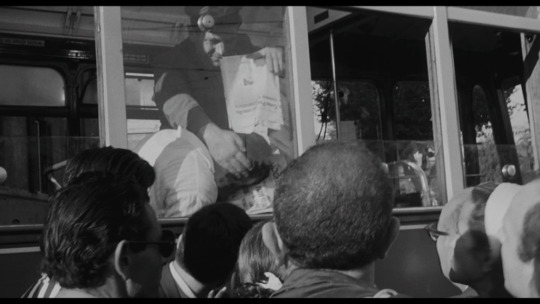
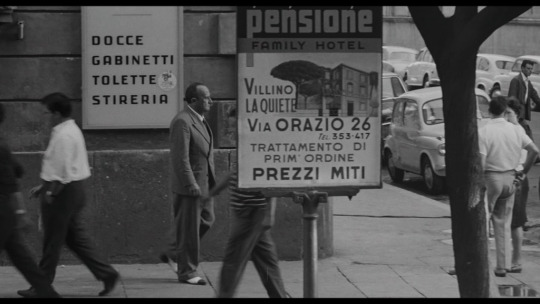

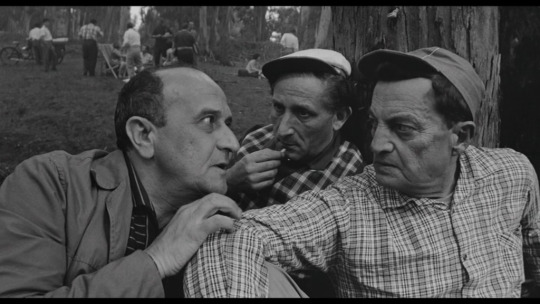


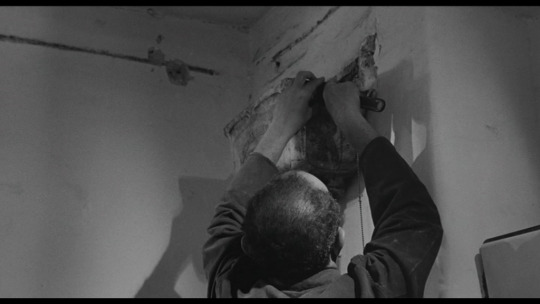
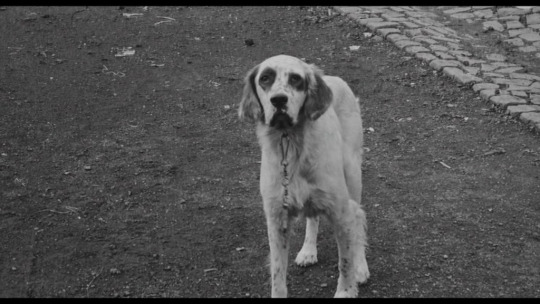
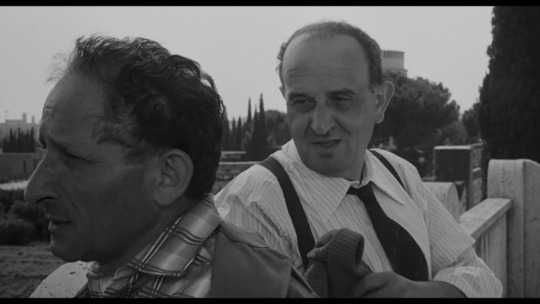
I giorni contati 1962
#I giorni contati#1962#les jours comptés#elio petri#italien#trop bavard pour être réussi#dommage#salvo randone#4/10
10 notes
·
View notes
Photo







La classe operaia va in paradiso [1971, Elio Petri]
#la classe operaia va in paradiso#the working class goes to heaven#lulu the tool#gian maria volonté#elio petri#great directors#great soundtrack#ennio morricone#ugo pirro#bruno nicolai#cinema#movies#film#working class#italian film#mariangela melato#flavio bucci#salvo randone#dante ferretti
31 notes
·
View notes